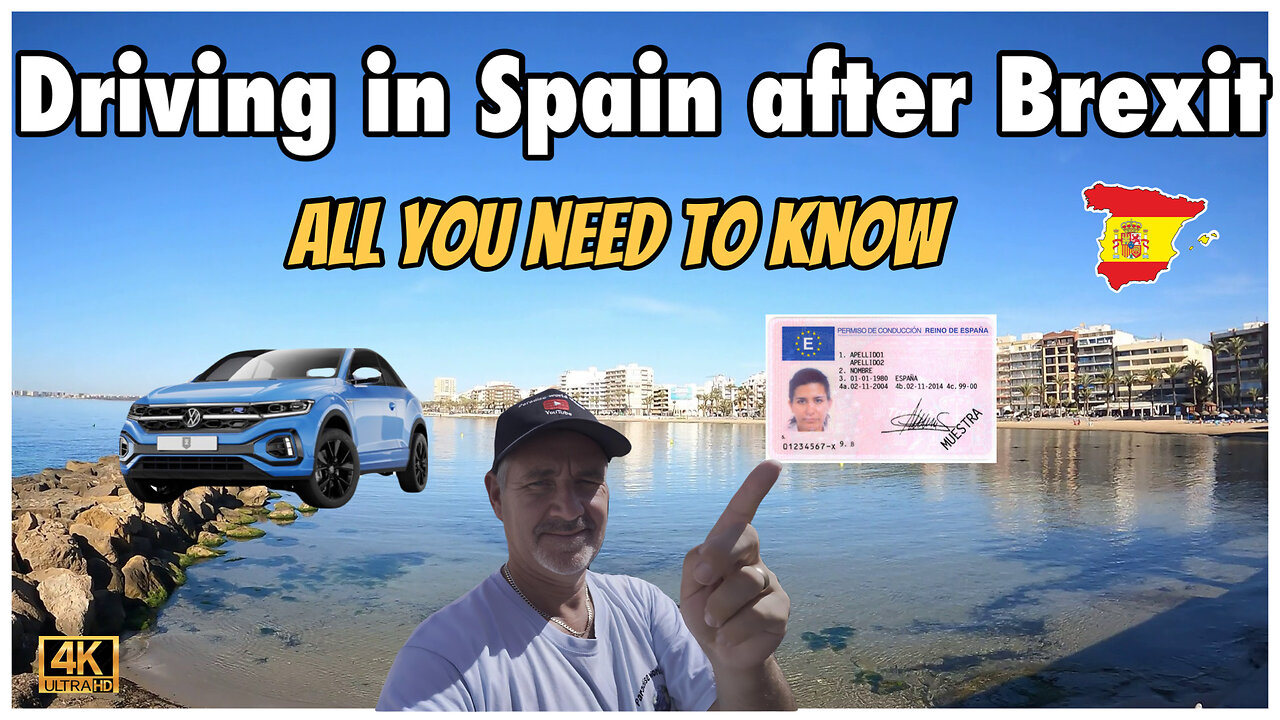Premium Only Content

all need to know driving in spain/car tax/import tax
mporting a car from the UK to Spain involves several steps, including dealing with taxes and registration processes. Here's an overview of what you need to know:
1. Importing the Car to Spain
Documentation: Gather necessary documents such as the original V5C registration document (logbook), purchase invoice, proof of address in Spain, your passport, and an NIE number (Número de Identificación de Extranjero).
ITV (Inspección Técnica de Vehículos): The car must pass an ITV inspection (similar to MOT in the UK) to ensure it meets Spanish standards, including checking for emissions and roadworthiness.
Certificate of Conformity: This document certifies that the vehicle meets EU standards. If the car doesn't have one, you might need to obtain it from the manufacturer.
2. Taxes and Fees
Customs Duty: As the UK is no longer in the EU, you may need to pay customs duty if the car is imported into Spain. The rate is generally 10% of the vehicle's value.
VAT (IVA): A VAT of 21% is usually charged based on the car's value plus customs duty. If you have owned the car for more than six months and have driven it over 6,000 km before importing, you might be exempt from VAT, but proof of ownership and use is required.
Registration Tax (Impuesto de Matriculación): This is a one-time registration tax based on the car’s CO2 emissions, ranging from 0% to 14.75%. Vehicles emitting higher CO2 levels pay more.
Road Tax (Impuesto sobre Vehículos de Tracción Mecánica or IVTM): This is an annual tax that varies depending on the vehicle and region in Spain.
3. Registration Process
Temporary Importation: You have 30 days to start the registration process once the car enters Spain.
Register the Vehicle: Submit the required documents to the Spanish Traffic Department (Dirección General de Tráfico, DGT). You'll need to get Spanish plates and complete the final registration.
4. Insurance
Before driving, ensure you have valid insurance that covers the vehicle in Spain. UK insurance will likely not be valid once the vehicle is officially registered in Spain.
5. Additional Costs
Plates: You will need to pay for Spanish number plates.
Roadworthiness and Emissions Modifications: If the vehicle needs adjustments to meet Spanish standards, this will incur additional costs.
Key Tips
Professional Help: Consider using a gestor (an administrative professional) who can handle the paperwork and make the process smoother.
Plan for Time and Costs: The process can be time-consuming and expensive, so planning and budgeting accordingly is essential.
-
 58:29
58:29
The StoneZONE with Roger Stone
5 hours agoRoger Stone Hails Confirmation of Kash Patel, Trashes Schiff for Attacks On Patel | The StoneZONE
37.2K10 -
 48:44
48:44
Man in America
10 hours agoA MASSIVE Global Financial Reset Is Coming—Are You Ready?
27K3 -
 1:15:42
1:15:42
Precision Rifle Network
1 day agoS4E5 Guns & Grub - The Best Rifle Under $2000
35.5K5 -
 1:02:54
1:02:54
Glenn Greenwald
1 day agoSouth Korean Economist Ha-Joon Chang on the Economic World Order, Trump's Tariffs, China & More | SYSTEM UPDATE #410
69.6K44 -
 1:02:27
1:02:27
Donald Trump Jr.
10 hours agoBye Mitch, plus Kash confirmed, Interview with AJ Rice | Triggered Ep.218
120K70 -
 1:12:27
1:12:27
The Amber May Show
12 hours ago $1.97 earnedWomen Of Rumble 02-20-25
29.3K7 -
 41:18
41:18
Kimberly Guilfoyle
10 hours agoToday, We Kash in on Equal Justice, Live with Ryan Walters & Daniel Turner | Ep.198
94.2K22 -
 1:36:50
1:36:50
Redacted News
9 hours agoThe TRUTH in Ukraine has been EXPOSED by Trump and they are melting down | Redacted w Clayton Morris
133K224 -
 2:05:35
2:05:35
The White House
10 hours agoPresident Trump Hosts a Reception Honoring Black History Month
84.5K45 -
 1:05:09
1:05:09
Josh Pate's College Football Show
10 hours ago $0.89 earnedCFP Expansion: Latest Intel | CFB’s Schedule Problem | Arch Manning Hype | ACC Program Rankings
30.3K5